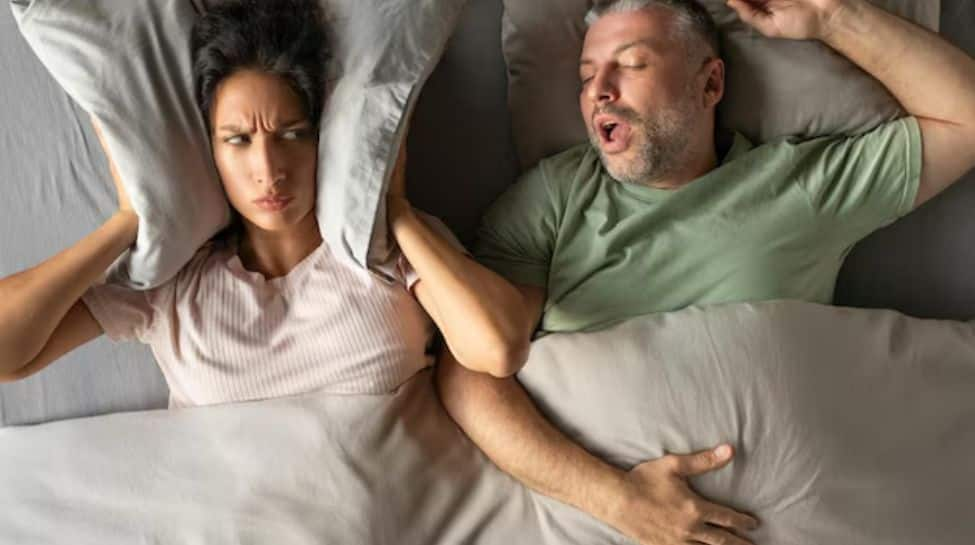Both snoring and undiagnosed sleep apnea can be an early indicator of obstructive sleep apnea (OSA) (especially if you are overweight). This serious condition interrupts your breathing during sleep, affecting your health, energy level, and focus.
Dental involvement can play a considerable role in identifying and treating these complications. Through a regular dental exam, we will look for signs such as tooth wear, a narrow palate, or a retruded jaw position, all of which can lead to airway obstruction. We use 3D imaging, airway assessments, and sleep studies to understand our patients’ risk level for sleep apnea.
Dr. Manvi Srivastava, a Dentist at NIIMS Medical College and Hospital, shares how snoring can be a dental problem.
Oral appliance therapy has transformed mild to moderate sleep apnea and sleeping disorders. Oral appliances are custom-made and generally work by changing the position of the jaw and tongue to maintain an open airway while you sleep. The fact that they are discreet, non-invasive, and preferable to other alternatives has attracted the interest of young professionals and students seeking options to the CPAP machine.
By integrating dentistry along with sleep medicine, we are assisting young adults in breathing better, sleeping longer, and applying the skills they learned at their university or college. To ignore the implications of a snore as anything other than a noise is simply unsound.
Dr. Nikita MMotwani, Specialized in Aesthetic Dentistry, Co-Founder of Smile Concepts, adds, “Snoring is usually dismissed as a simple nuisance, but snoring is a red flag in many young adults that might lead to obstructive sleep apnea (OSA), a condition in which a person stops breathing during sleep. Without being diagnosed, OSA may predispose to high blood pressure, fatigue, poor concentration, and even heart disease. What most people do not understand is that dentists are in a very unique position to detect these red flags at the time of routine check-ups.”
Dentists commonly inspect the mouth, jaw, and airway and are the first to detect anatomical problems that can cause sleep-disordered breathing. As an example, a small airway, a big tongue, or a crooked jaw may obstruct air movement and cause snoring. Dentists can identify patients who are at risk far earlier than the condition worsens by posing simple questions on lifestyle and sleep.
Other than early diagnosis, dentistry provides creative solutions. Custom oral devices-a night guard-like device aimed at repositioning the jaw and tongue to maintain an open airway at night. They are non-invasive, lightweight, and especially suitable when treating mild and moderate sleep apnea, and can be used as an alternative to bulky CPAP machines. There are also dentists who work with sleep experts to provide holistic care where patients get diagnosed and treated in time.
Dental professionals are increasingly a crucial ally in the battle against sleep apnea as awareness increases. They are also making the young adults sleep better by acknowledging snoring as a problem and not just a nuisance, which ensures the young adults lead a healthier life with a newfound energy every day.
Dr. Bhavesh Soni from Harsha Dental Clinic, Mulund, Mumbai, further added, “Snoring is not a significant medical problem, but can lead to a severe medical condition called Obstructive Sleep Apnea. It’s a blockage of your airway when the lower jaw and tongue collapse at the back of the throat when you lie down. This obstruction leads to breathing issues. TSleep is disturbed and can lead to complications if not treated in time.”
Symptoms – Morning headaches, tiredness/dryness in the mouth upon waking up, choking or gasping in the night, poor concentration, memory disorientation, anxiety, and depression, to name a few.
It’s not a dental issue. But we have an Oral Appliance Therapy wherein we make a mouthpiece that’s made out of impressions of your teeth so that it fits inside your mouth. It’s worn at night. The custom-made sleep appliance is an Orthodontic Retainer – it prevents the airway from collapsing by supporting the jaw in a forward position, which advances the tongue. This cuts down the snoring and avoids Obstructive Sleep Apnea. This is just one of the ways we can customise the ways and appliances as per the patient’s needs.

